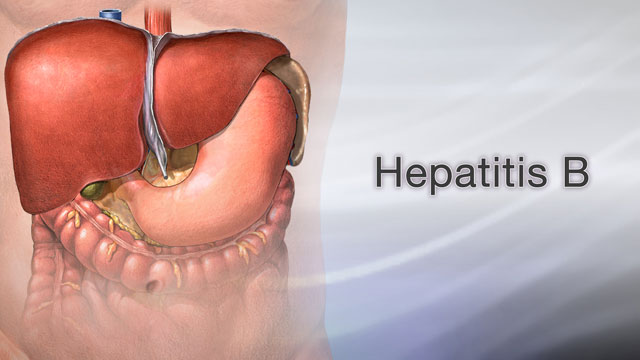Hepatitis B, often abbreviated as HBV, is a formidable virus that targets the liver, causing inflammation and potential damage. Originating from exposure to infected body fluids, it’s a condition that has raised concerns globally, especially among couples where one partner is diagnosed. The transmission isn’t just limited to blood; it can occur through semen, vaginal discharge, or even from an infected mother to her baby during childbirth. Understanding HBV is the first step toward prevention and ensuring the safety of loved ones.
Understanding the Risk of Transmission
The mere thought of a loved one having HBV can be daunting. But how does this virus spread? Primarily, HBV travels through body fluids. This means activities involving blood, semen, or vaginal discharge are potential transmission routes. It’s crucial to note that HBV is significantly more contagious than HIV, making its transmission risk a serious concern.
However, not all close interactions pose a threat. For instance, while many fear the transmission of HBV through kissing, it’s a rare occurrence. The real risk lies in deep kissing, especially if one has cuts or sores in their mouth. Sharing personal items like toothbrushes or razors, especially if there’s a presence of blood, can also be a transmission route. Being informed about these nuances can help in taking the right precautions.

Hepatitis B Statistics
Knowledge is power, and when it comes to HBV, understanding its prevalence can guide better decisions. The Centers for Disease Control and Prevention (CDC) estimates that up to 1.2 million people in the United States are living with HBV. What’s even more alarming is that over 60% of these individuals are unaware of their infection. The age group most affected ranges from 30 to 59. These statistics underscore the importance of regular testing and awareness campaigns to curb the spread and impact of HBV.
Preventing the Spread of Hepatitis B
Protection against HBV is paramount, especially if you’re living with someone who has the virus. Here are some steps to ensure safety:
- Hepatitis B Vaccine: This is the most effective way to prevent HBV. The vaccine is usually given in three doses over six months and provides long-term protection.
- Safe Practices: Always use protection during intimate relations. Condoms can significantly reduce the risk of transmission. If you’re considering starting a family, consult with a healthcare professional about the risks and precautions.
- Avoid Sharing Personal Items: Items like razors, toothbrushes, or nail clippers can carry traces of infected blood. Always have separate personal care items.
- Healthcare Workers: If you’re in the medical field, always follow standard precautions. Use gloves, wash hands frequently, and ensure all needles and sharp objects are disposed of safely.
Testing for Hepatitis B
If you’re at risk or living with someone with HBV, regular testing is essential:
- Who Should Get Tested: Those with a diagnosed partner, healthcare workers, and individuals who have lived in or traveled to high-risk areas should consider regular testing.
- Understanding the Results: A positive result indicates exposure to the virus, but further tests will determine if it’s an active infection or if the body has successfully fought it off.
Living with a Partner with Hepatitis B
Discovering that your partner has HBV can be overwhelming. However, with the right precautions, it’s possible to lead a normal life:
- Open Communication: Discuss the diagnosis openly. Understand the risks and work together to ensure both partners are safe.
- Medical Consultation: Regular check-ups and consultations with a healthcare professional can guide both partners in living safely and healthily.
- Emotional Support: A diagnosis can be emotionally taxing. Be there for your partner, offering support, understanding, and care.
Vaccination: The Best Defense
While awareness and precautions are essential, vaccination remains the most effective shield against Hepatitis B:
- Efficacy: The Hepatitis B vaccine has an impressive efficacy rate of over 90%. Once the full series of shots is administered, it offers long-term protection against the virus.
- Who Should Get Vaccinated: Apart from infants, adults who are at a higher risk, including those with an infected partner, should consider getting vaccinated. It’s also recommended for healthcare workers, frequent travelers, and individuals with compromised immune systems.
- Vaccination Schedule: Typically, the Hepatitis B vaccine is given in three doses: the initial shot, followed by a second one a month later, and the final dose six months after the first.
Symptoms of Hepatitis B
While many with Hepatitis B might not exhibit symptoms, being aware of potential signs can lead to early detection:
- Early Symptoms: Fatigue, mild fever, muscle or joint pain, and a loss of appetite are some of the initial signs.
- Later Symptoms: As the disease progresses, symptoms might include jaundice (yellowing of the skin and eyes), dark urine, abdominal pain, and nausea.
- Chronic Hepatitis B: Some individuals might develop chronic Hepatitis B, which can lead to liver complications. Regular medical check-ups can monitor liver health and detect any potential issues early on.
FAQs
Q: Can I have a child if my partner has HBV?
- A: Yes, but it’s crucial to consult with a healthcare professional. With the right precautions, including vaccination and monitoring, the risk of transmission can be minimized.
Q: Is casual contact, like hugging or sharing food, a risk?
- A: No, casual contact does not transmit Hepatitis B. The virus spreads through direct contact with infected body fluids.
Q: How often should I get tested if my partner has HBV?
- A: Regular testing is recommended, but the frequency should be discussed with a healthcare professional based on individual circumstances.
Conclusion
Living with or around someone with Hepatitis B might seem daunting, but with the right knowledge, precautions, and medical guidance, it’s entirely manageable. Prioritizing vaccination, practicing safe habits, and maintaining open communication with partners and healthcare providers are the cornerstones of navigating this challenge. Remember, Hepatitis B is preventable, and with collective awareness and action, its impact can be significantly reduced.




